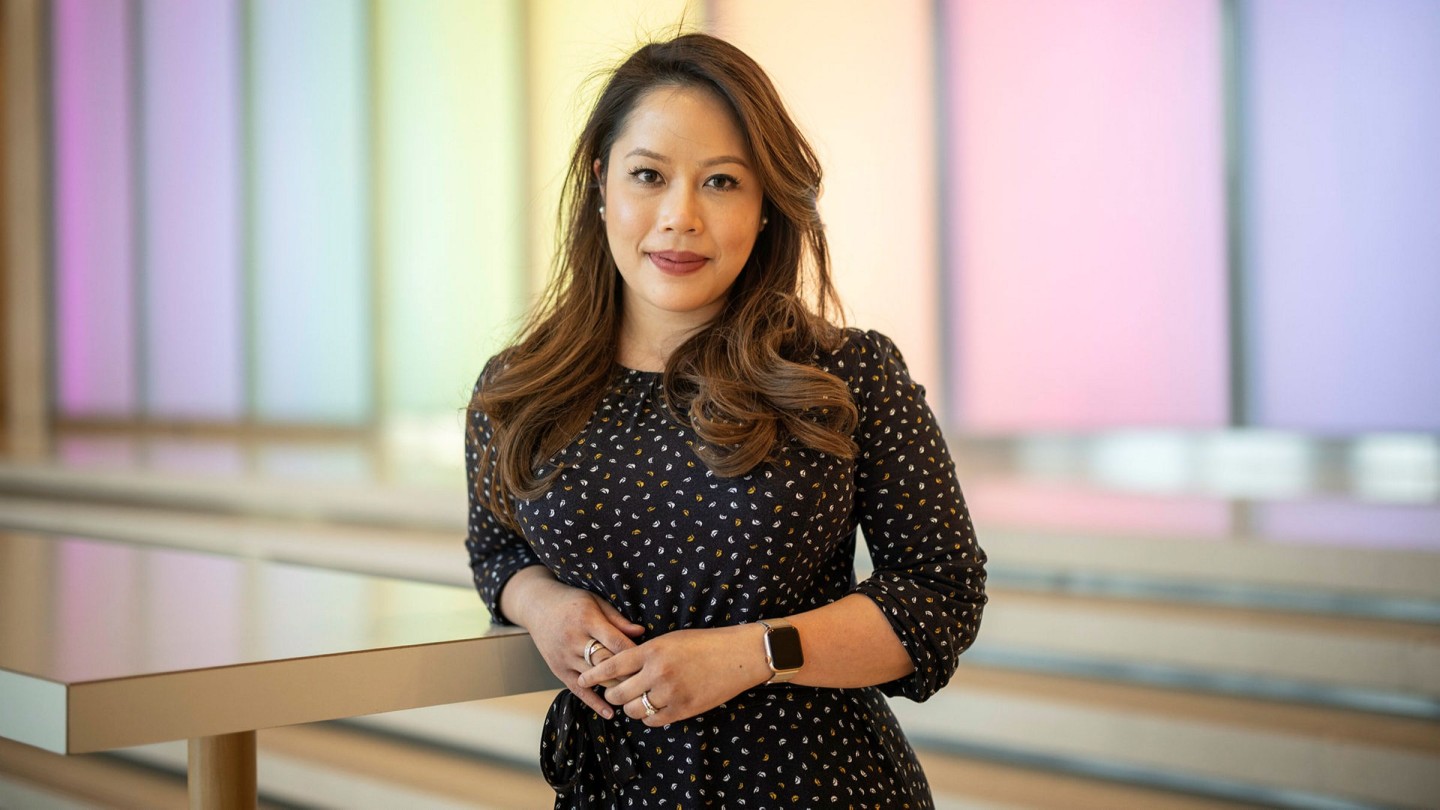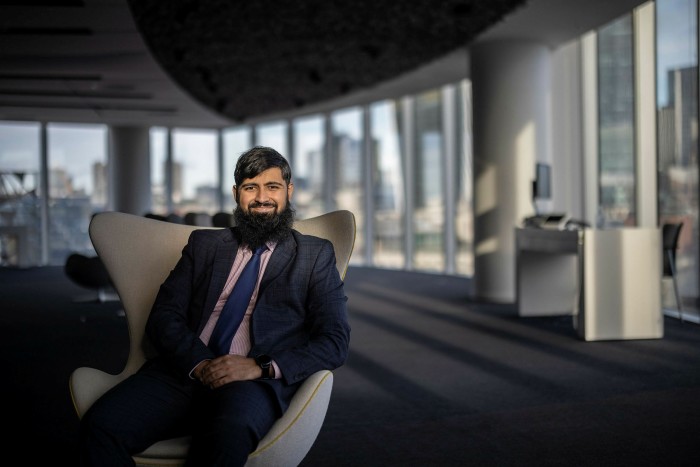How to support employees who find motivation in faith, not work

Roula Khalaf, Editor of the FT, selects her favourite stories in this weekly newsletter.
“As a Muslim student, I can’t expect perfection at university or in my future employer, but I do expect them to try,” says Zaynab Ahmed, a final year law student at Oxford university, when describing how important it is for Muslims to feel heard and valued in an organisation.
While most employers shout about their credentials as diverse and inclusive organisations, there is often misunderstanding when it comes to what inclusion means for those Muslim staff who may have a different sense of “purpose” at work.
Many employees, especially younger staff, look to employers to offer a sense of doing good in the world, and are often focused on measures of environmental, social and corporate governance (ESG) progress. For Muslims — as for any practising believer in any God — purpose is not necessarily sought in work: it is often spiritual. So for many, rather than finding purpose in work, they look to express their faith in their professional lives.
For one female corporate lawyer, true inclusion would be feeling comfortable to fully express her Muslim faith at work. That’s not happening at the moment: “I’ve felt much more ‘othered’ in the world of work than I ever did at university,” she says. “For example, at work [events], I feel more peer pressure to drink alcohol, and my glass of coke really stands out among the many glasses of wine.
“My manager is great; she’s accommodating too but this [job] doesn’t align with the afterlife or our values. There is not much that could keep me here,” she says. The concept of legacy is central to the Islamic tradition. For Muslims, their sense of purpose is centred around pleasing God and the legacy they will leave in this world. There is an important connection between their life now and how they will answer to God hereafter.
“The two elements of leaving a spiritual legacy as Muslims and being successful in our careers have often felt at odds with each other,” says Raihan Karim, director of The Legacy Project, a student-led grassroots initiative that aims to help people from disadvantaged backgrounds pursue their educational and professional goals. While TLP’s guidance is for people of all faiths, topics like legacy through a spiritual and professional lens are considered together.
Many professionals can find it difficult to explain religious observances. It is not always easy for staff to take five minutes out in the middle of the day for prayers, or say that they cannot attend an evening meeting as it is Ramadan and the timing clashes with iftar, the breaking of the fast.
One solution for employers is to raise awareness among all staff about faith-related priorities. Two global senior partners at law firm Clifford Chance sent a Ramadan Kareem (Blessed Ramadan) email to all staff last year describing ways to support Muslim colleagues and published a video about how workers celebrate Ramadan.
“It opened the door for conversations with genuinely interested non-Muslim colleagues. It was lovely,” says Adilah Azil, a lawyer at the firm. “I even had a non-Muslim supervisor who, just after sunset, said, ‘I think it’s time for you to pray, isn’t it?’”
The next step in inclusivity is to include faith in business discourse. At present, not feeling comfortable explaining one’s point of view from a religious perspective can be a barrier for Muslims. If employees were given the chance to have meaningful discussions about faith, such talks could be valuable in themselves, but also help Muslim colleagues to feel “seen”.
“I’ve only been successful in my career because I feel comfortable in my faith at EY,” says Mudassar Chaudhry, co-chair of the accountancy firm’s Muslim Community (EYMC). He describes a pivotal moment for him when, as a 16-year-old intern at the firm, a non-Muslim colleague showed him a prayer room. Her welcoming attitude to his faith led to his career there.

Indeed, inclusion efforts are particularly effective when they are applied consistently across the business and embedded into the language and actions of all employees. Last year the EYMC launched its first global Ramadan video featuring Muslim staff discussing what the holy month means to them and some of the company’s non-Muslim senior leaders. Mudassar’s inbox was inundated by surprised colleagues and Muslims interested in the work of EY.
Others are using social channels to share the experiences of Muslims at work. Zakir Hasan, a content and publishing manager, founded Day of Wrk to showcase a day in the life of under-represented minorities and support people from disadvantaged backgrounds. Hasan hopes the site will be a practical tool and “can change people’s luck as they learn how to navigate and thrive in a place, without having people who look like them”.
Beyond these initiatives is a recognition that more employer engagement with faith and spirituality is something that is important for many people of all religions, not just Muslims, to feel comfortable in their faith and expressing purpose at work.
There are business benefits too. As Peter ter Kulve, head of Unilever’s global homecare business, says: “We need to understand all our customers and align our business with the long-term needs of our communities. We try to create a safe and respectful workplace for everyone so that we can engage all possible talent.”
Securing career pathways
Even before entering the world of work, Muslim students face challenges around career choices. Affordability is one significant challenge. Some 50 per cent of Muslim households in the UK face poverty, according to 2016 figures from The Muslim Council of Britain. On top of this, for many Muslims paying interest on a loan is regarded as impermissible. The cost of university and the lack of interest-free or sharia-compliant student loans create barriers to education for Muslim students. Organisations such as the Aziz Foundation support Masters degree funding for Muslims and have 100 Masters scholarships available.
Universities can find it hard to attract Muslim candidates to courses that are not vocational in nature, such as the arts. This is partly due to reluctance on moving away from home: such aversion can be overcome if they are studying a subject such as medicine.
But other factors can be problematic. Maryam Adam, a graphic design graduate and artist, struggled to find a course that complemented her faith. “Nude life drawing is a crucial part of many arts courses, but for me, this caused spiritual conflict,” she says noting that one art school refused to adjust the course for her so she had to find an alternative programme.
Some aspiring students’ families have little direct experience of higher education and need reassurance. “I am the first single woman in my family to graduate from university and accommodation that was labelled ‘halal’ (ie single sex, halal food) really helped my family to accept my going to university,” explains Ayesha Ulhaq, a doctoral candidate at the University of Cambridge.
Comments